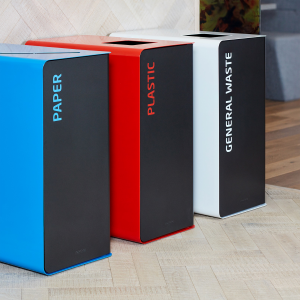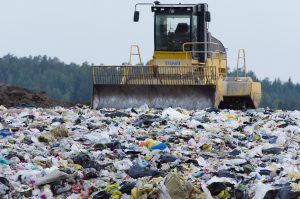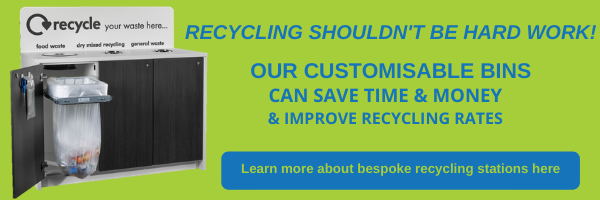How to get started with business recycling
Effective recycling solutions are now on the agendas of more and more businesses across the UK, with a view to becoming more sustainable. From deciding which materials you will recycle through to ensuring employees are fully engaged with the changes and are devoted to supporting a business recycling scheme, it can be an overwhelming task to get up and running.
Here is a step-by-step guide to help you get started with your business recycling scheme:
 1. Know the rules
1. Know the rules
If your business hasn’t started recycling yet, the overwhelming majority says you definitely should be. There are regulations in place now to ensure businesses are not sending too much waste to landfill. Recycling business waste means less disposal to landfill and less overall harm to the environment. The 2010 Landfill Allowance Trading Scheme is presently limiting the amount of waste which businesses can send to landfill and ISO40001 standards are there to lessen the impact of business waste on the environment. Landfill taxes are rising by the year, so the cost of your business not recycling could well be more than the cost of recycling!
2. What will you recycle?
The kind of waste you are recycling will often depend largely on what type of business you have. Most companies will generate large amounts of paper waste, and office based staff will generate cans, bottles, cardboard and general waste daily.
If you’re an organization which processes a lot of glass, metal or textile waste, you’ll need to consider factoring in the costs/benefits of adding these to your business recycling plan.
Often, used computer equipment and food waste is forgotten about when recycling. If your business has cupboards filled with old electrical equipment or you’re churning out a large amount of food waste which could be composted, remember to include all this in your plan.
3. Choose the right bins
When you’ve determined and settled upon which materials you are going to recycle, it’s time to purchase the correct business recycling bins for your requirements. You will need to ensure that different bins are clearly marked for each material. A variety of colours are available in most business recycling bin systems for example, or you may want to consider a multi-bin recycling station, with labels clearly identifying what each bin is for.
Also remember, size does matter and if you buy a set of bins which are too small for your business needs, you may find you’re having to empty them several times a day. Involving the people who regularly empty your business bins with your plan, and discussing what they think the needs are should help to give you a clearer idea of the size you will need.
If you do have a lot of business recycling to handle, consider investing in our longopac continuous liner system. It has been proven by many real businesses to:
-
- Reduce labour costs by 38% (much faster bin changing times).
- Decrease plastic usage by 70% (bags are filled completely full, so there is no wastage of bin liner reducing plastic).
- Reduce collection costs by 35% (the waste takes up much less space in your external bins, reducing the frequency of your collections).
- Increase recycling rates by 58% (Makes recycling easy and achievable in any environment – colour-coded liners and options for free-standing signs or lid signage, you can clearly communicate what waste goes where – even in heavy-duty or strictly regulated industrial environments.).

4. Involve the staff
Obviously there’s no use spending lots of money on a business recycling system if your staff aren’t going to use it. Putting the bins in a very obvious area where they won’t be hidden away has proved to be highly conducive to this. Some businesses even banish the bins under ever desk, and have a clearly marked, easy to get to recycling station in each office area, giving staff no excuse but to get on the business recycling band wagon.
It is also worth holding a small session or meeting with your staff to explain how the new recycling system will work and inform them of your expectations, and aspirations to become a more sustainable business. Even a email or newsletter to all staff will increase the awareness and will always help. You are likely to find the majority of staff are already well aware of how to recycle and are probably using their own recycling bins at home.
Another fantastic idea is to appoint your most influential, well-liked staff member to become a green champion. The object of this would be to help change the mindset of everyone in your company. Read our previous blog post here on how to appoint a green champion in your business.
5. Where does it all go?
Last but not least, it would be fruitless carrying out the first four steps if you have no idea what is going to become of your recycled materials in the future. This is where you’ll really need to do your research. There is usually local companies in the UK who specialise in business recycling. You may need to use more than one of these for collecting your recyclable waste. Contemplate what happens to the waste when it’s taken by each company and satisfy yourself that you are pleased with the arrangement. Many recyclable materials can be sold and even earn you some money back.
At Unisan, our mission is to make recycling at work easier and more engaging. We are here to help and would love to discuss your needs with you. Call us on 0330 700 6000

